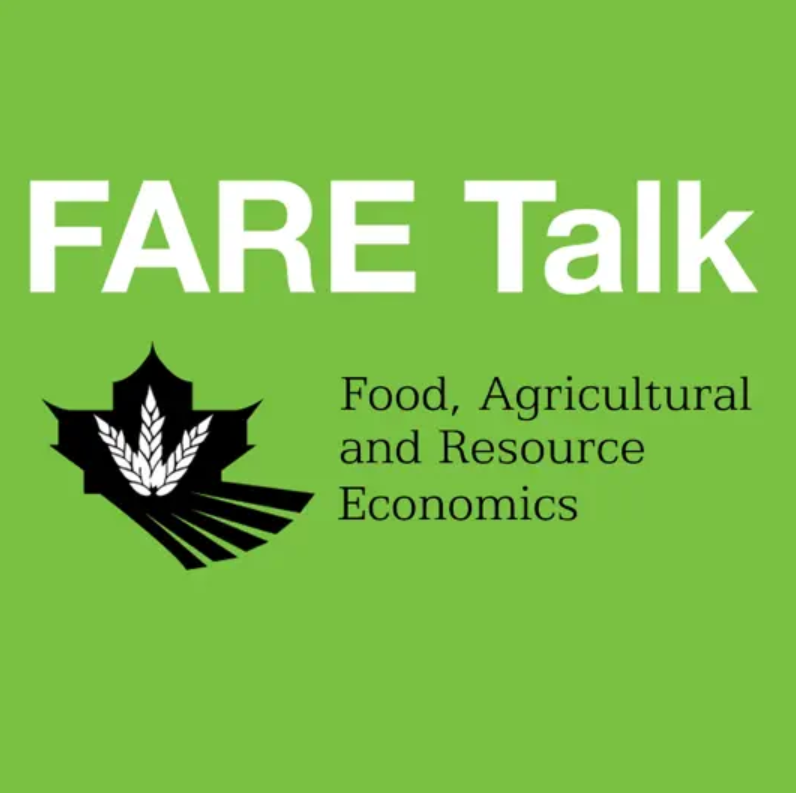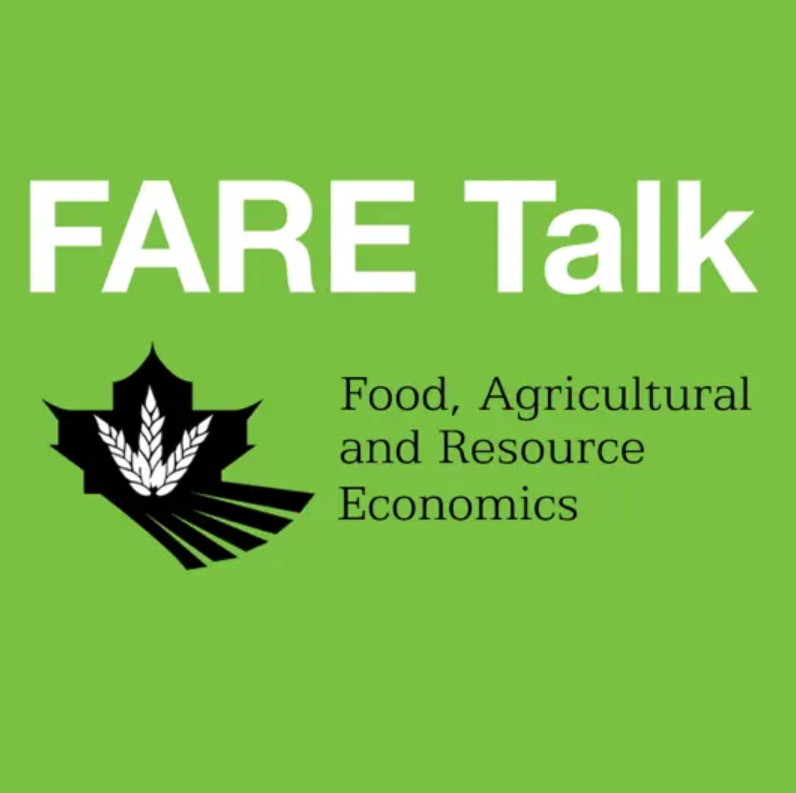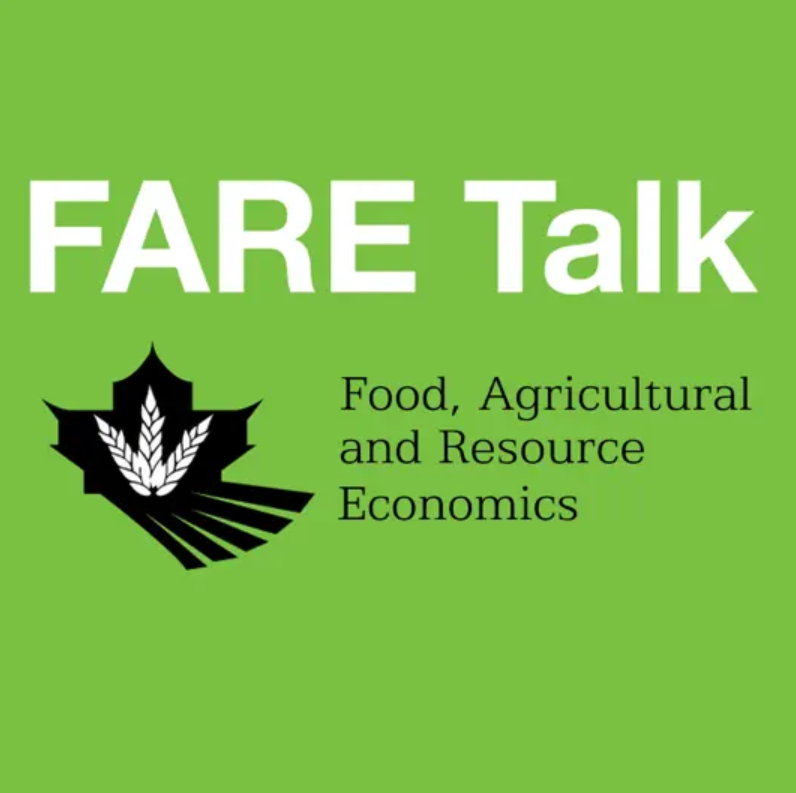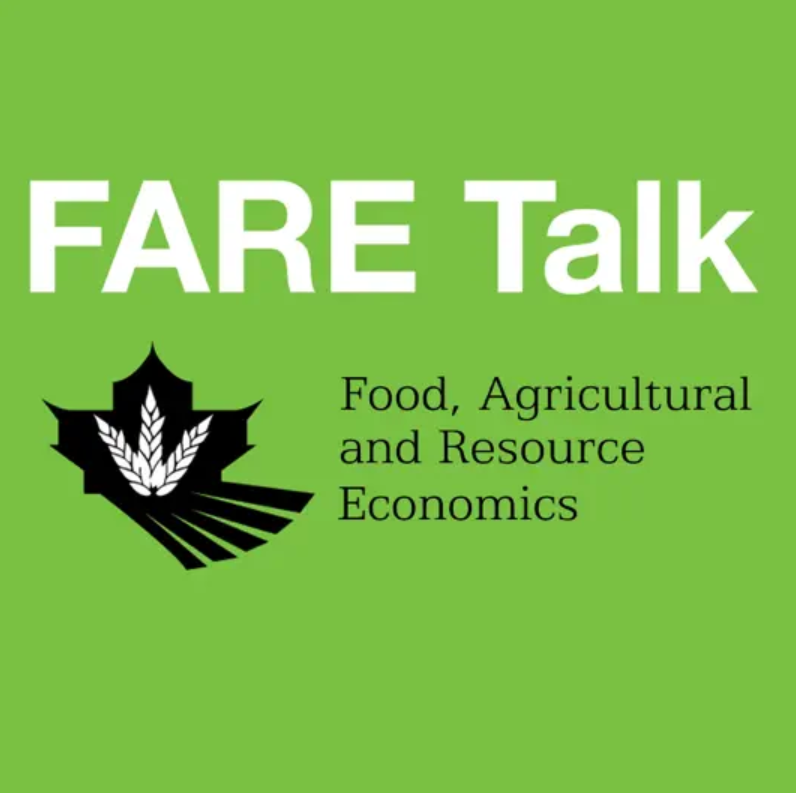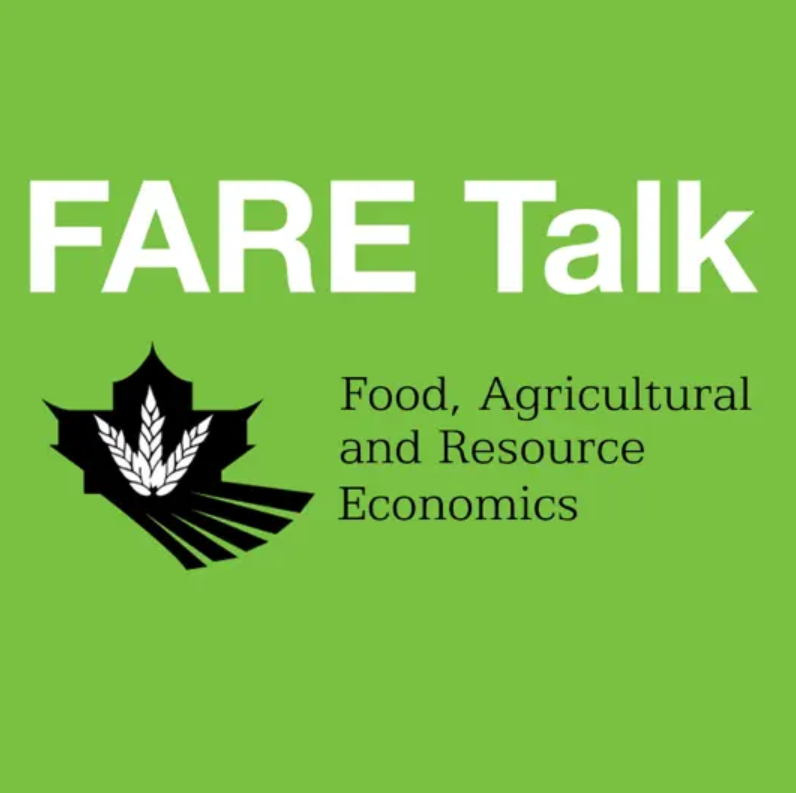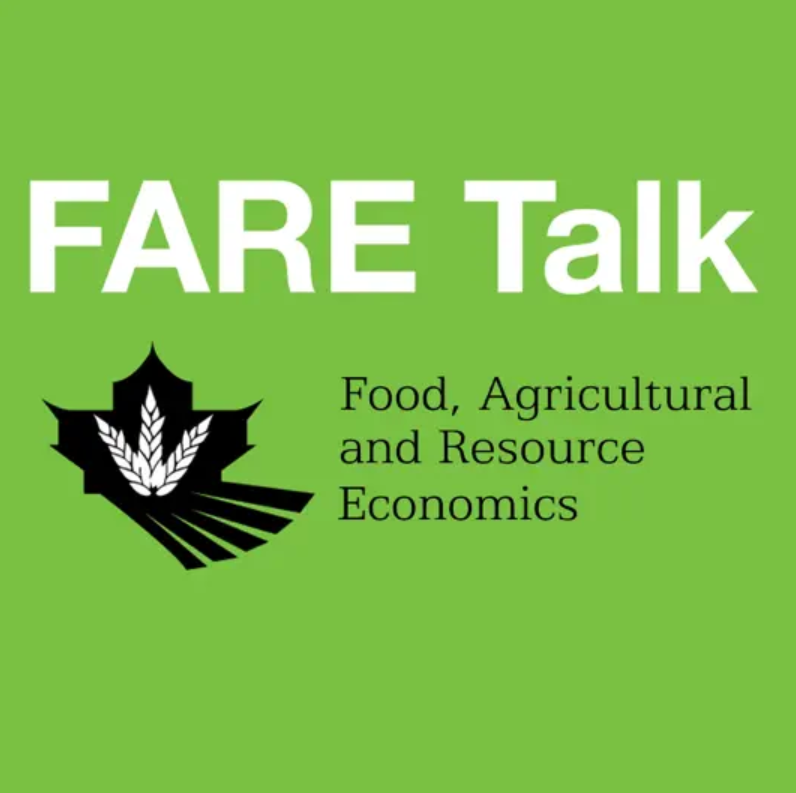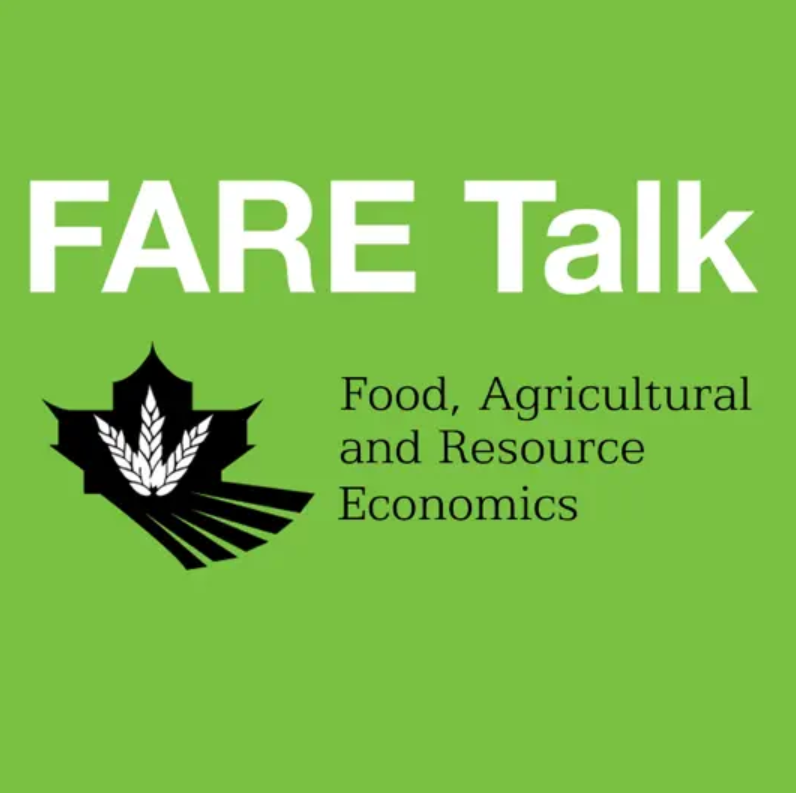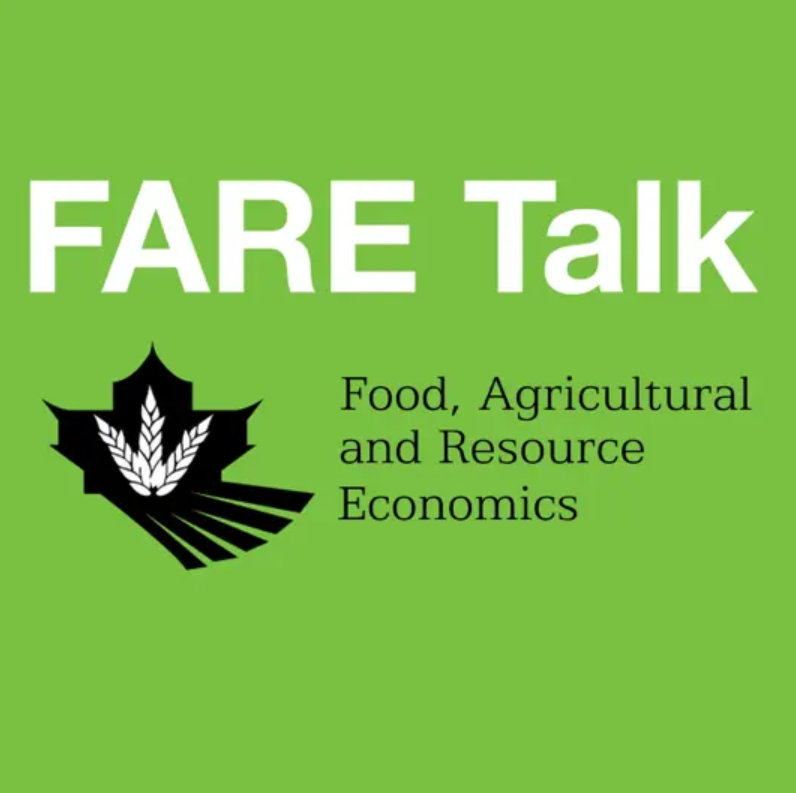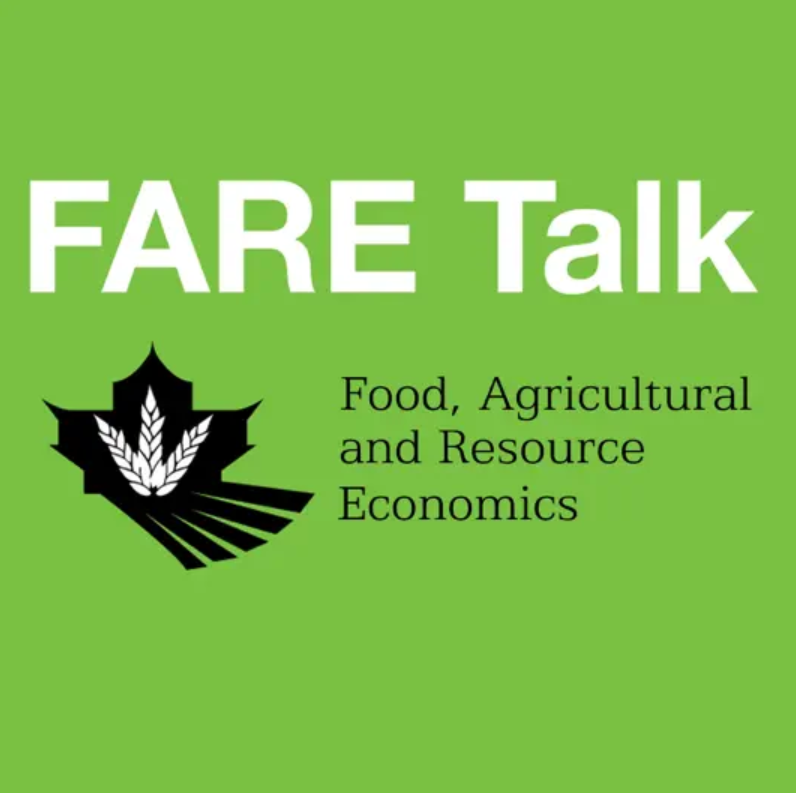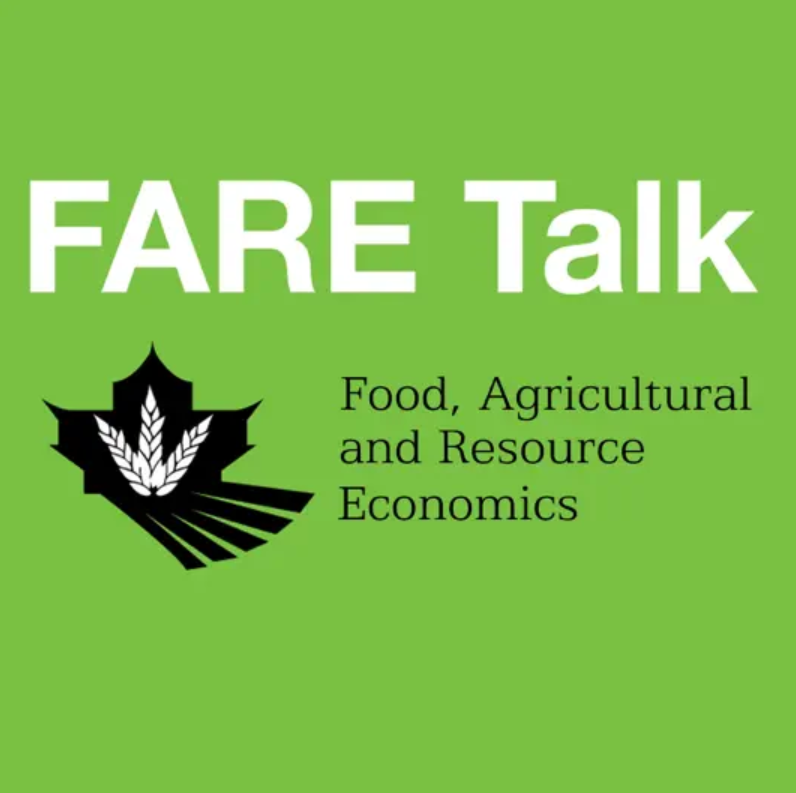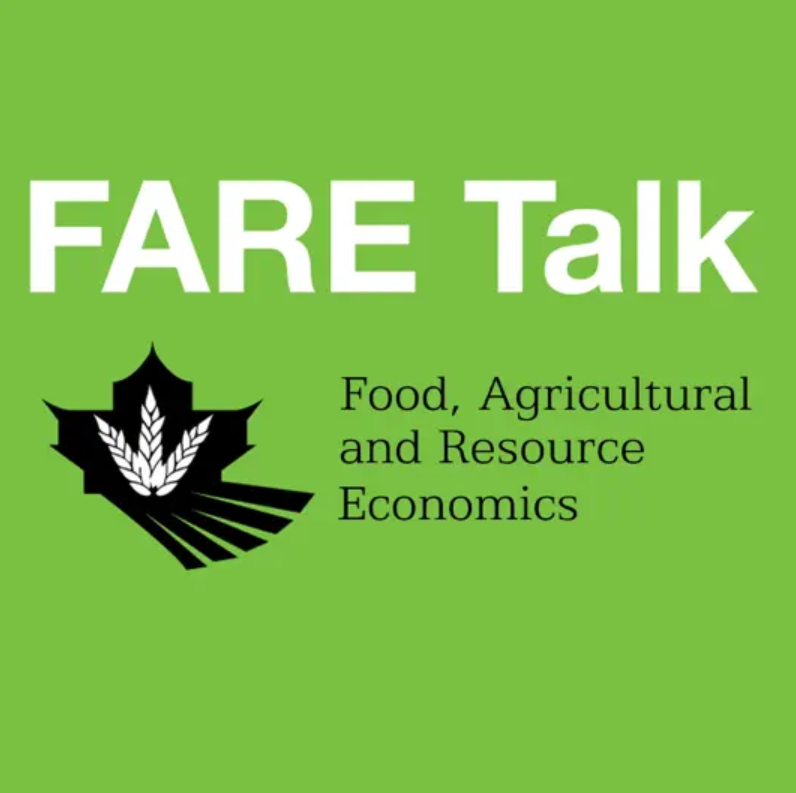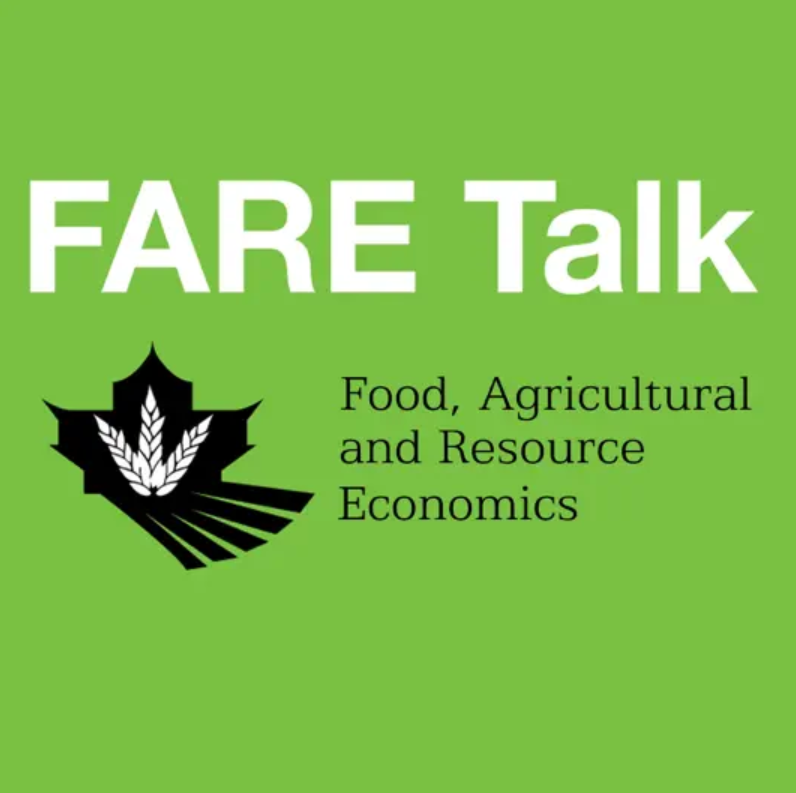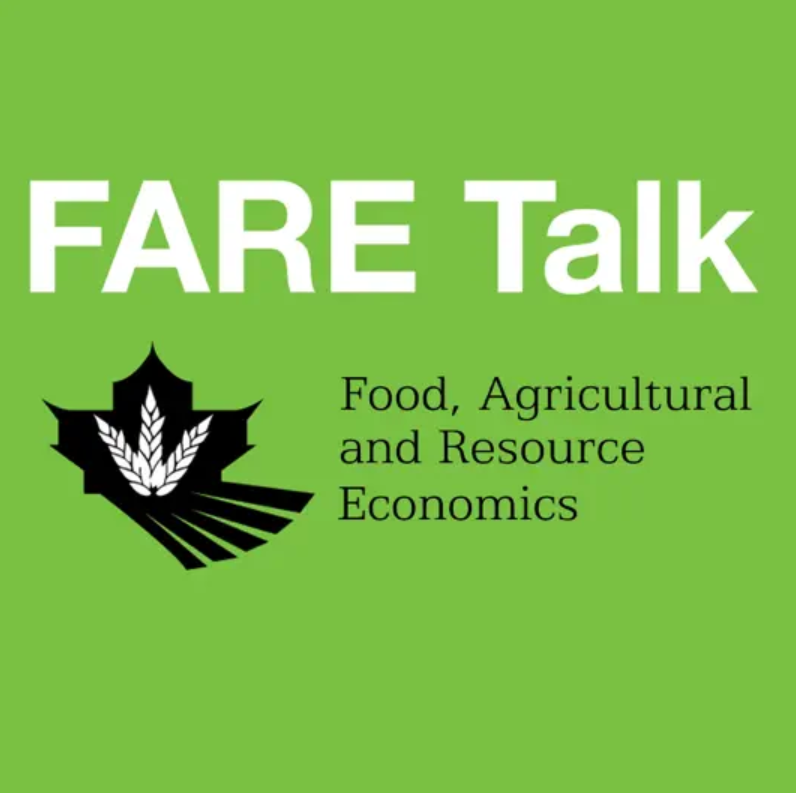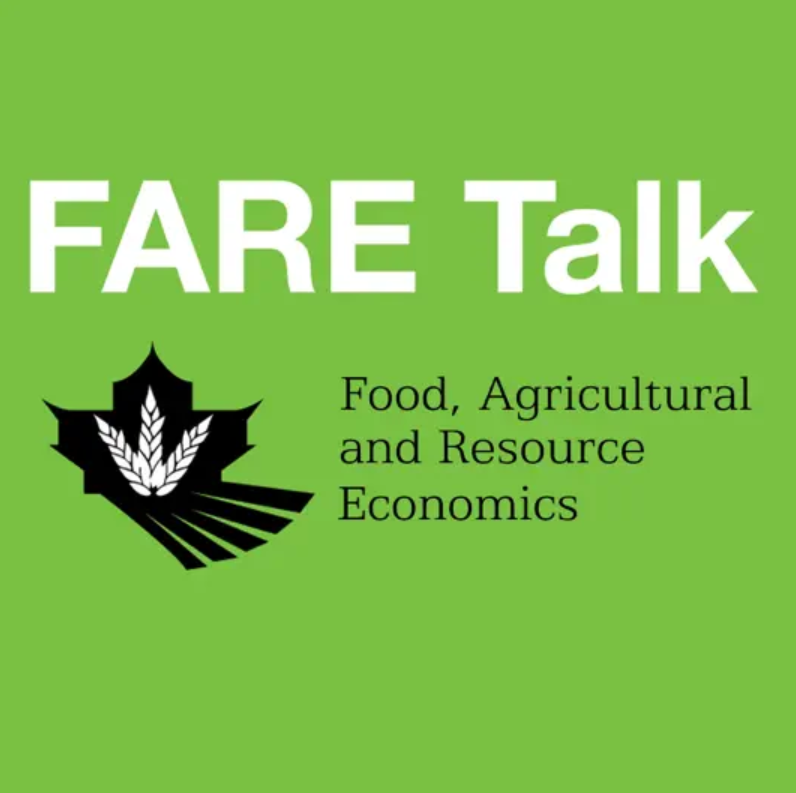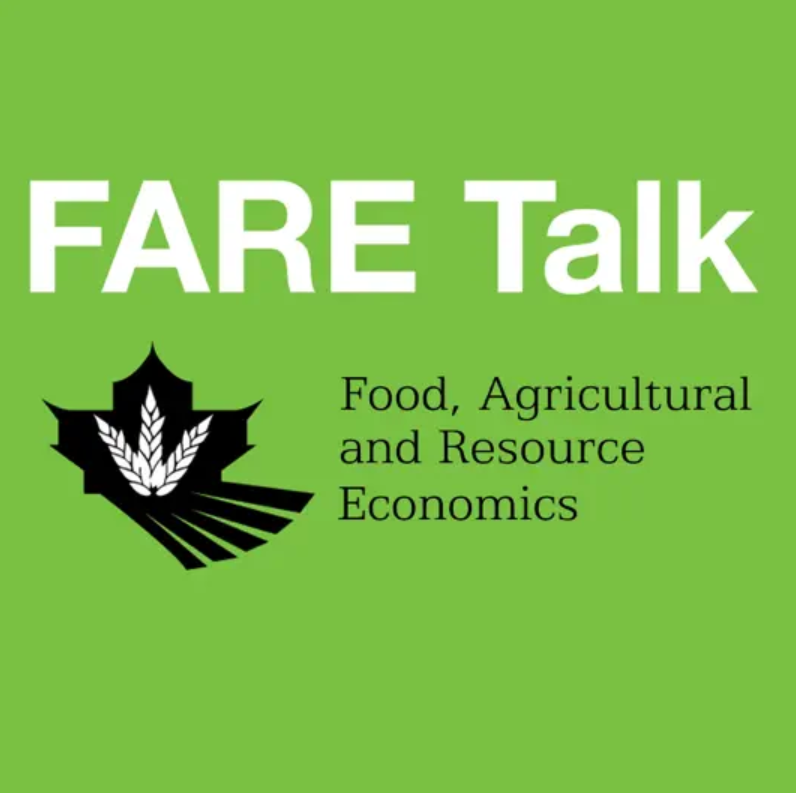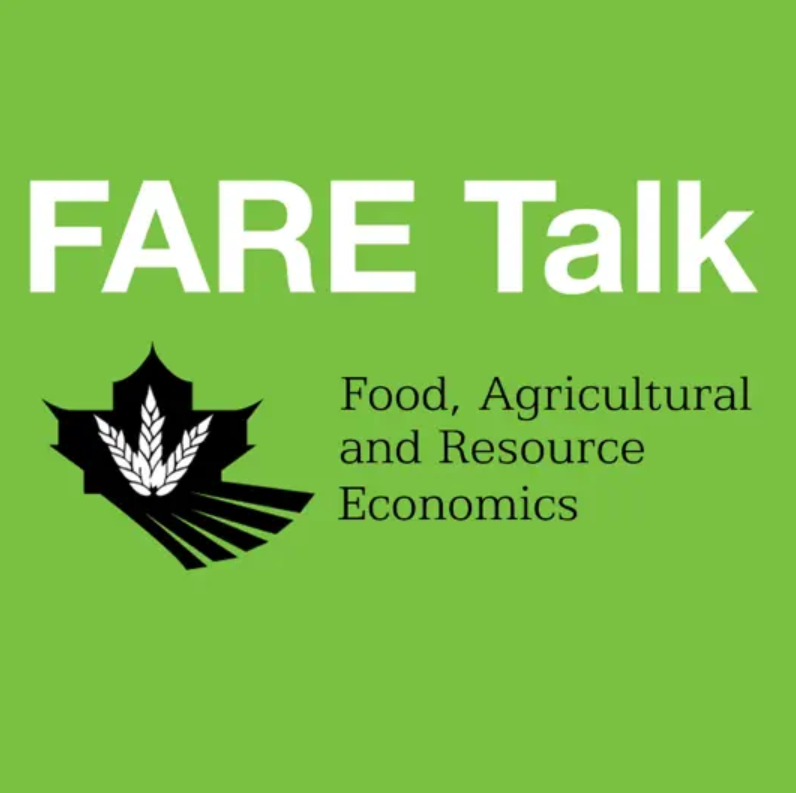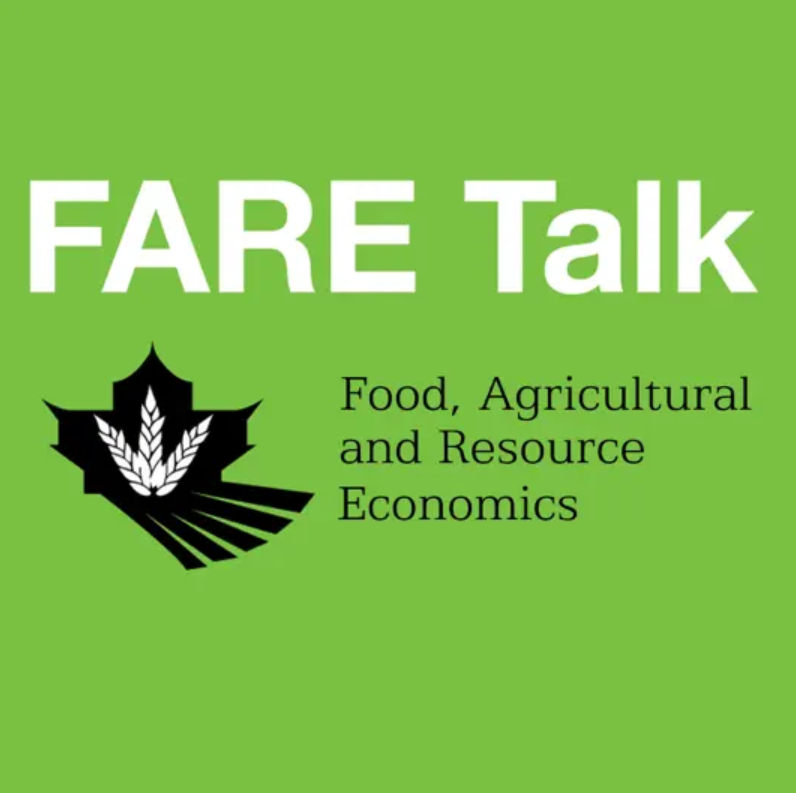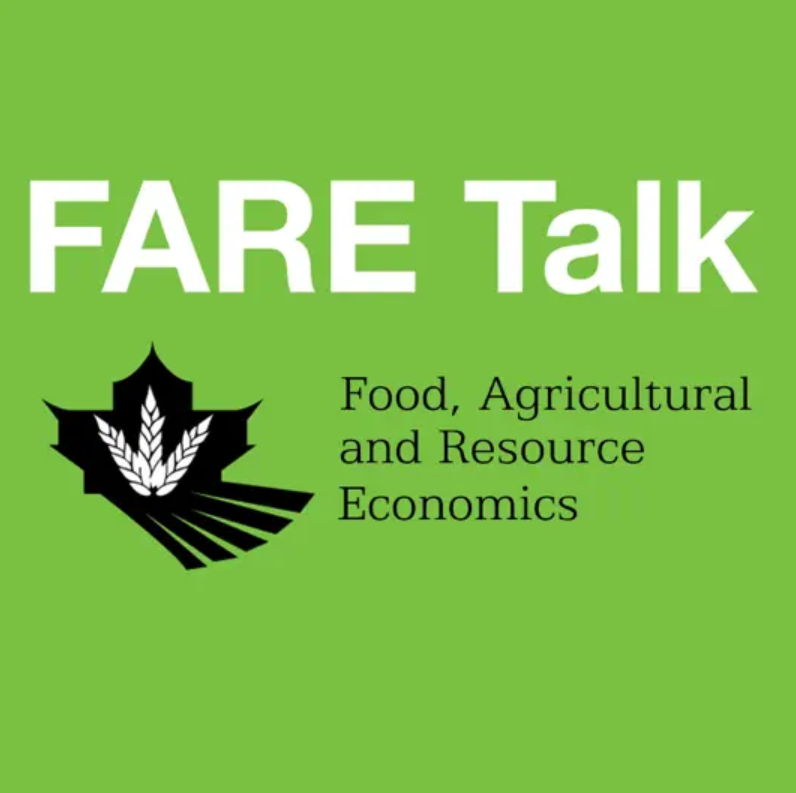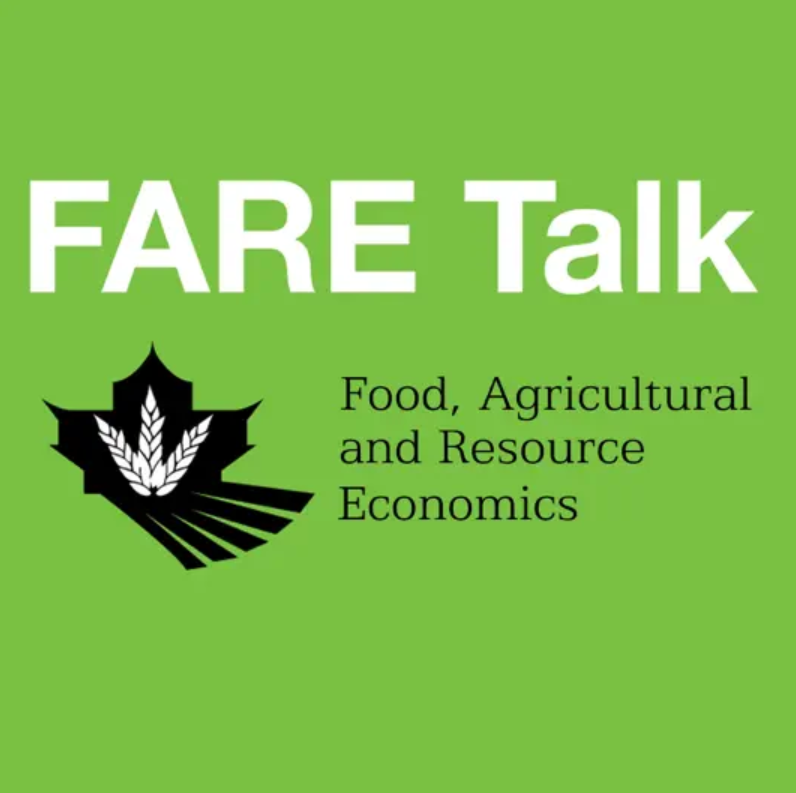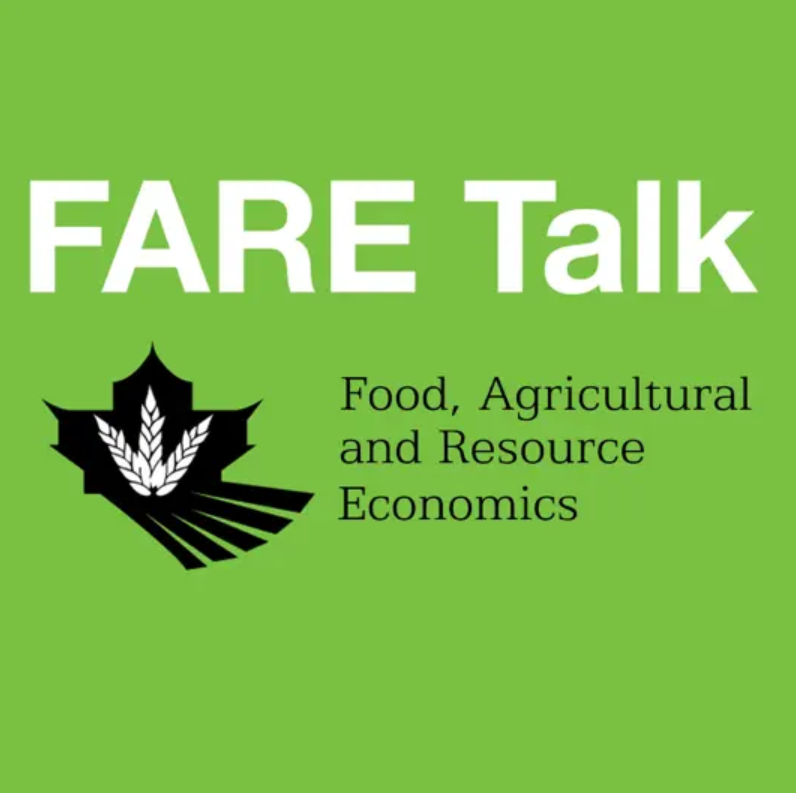Farm Succession Planning: Reflections and Suggestions - May 11th, 2012
Description
Jennifer Stevenson and Dr. Brady Deaton discuss farm succession planning. Jennifer is the Business Finance Program Lead with the Ontario Ministry of Agriculture Food and Rural Affairs (OMAFRA).
Transcript
Brady Deaton Jr.: Welcome to FARE Talk, where we set out to provide enduring discussions on contemporary topics relevant to our economy with particular emphasis on food, agriculture, and the environment. My name is Brady Deaton, Jr. of The Department of Food, Agriculture, and Resource Economics at The University of Guelph. I'll be your host. My guest today is Jennifer Stevenson, she works for The Ontario Ministry of Agriculture, Food, and Rural Affairs as The Business Finance Program Lead. She is very involved in supporting farm tax and business seminars, as well as ongoing efforts to enhance the capacity of farmers to develop succession plans. Jennifer, welcome to FARE Talk.
Jennifer S.: Thank you.
Brady: I recently heard you speak in Fergus about succession planning, particularly as it relates to the agriculture sector, and it was really interesting to me. I hadn't read that much research on it, but I was aware of the issue, and I was hoping that we could explore that in today's conversation. So, just to kind of get the ball rolling, talk to me a little bit about your role with the ministry in looking at succession planning?
Jennifer: Actually it's a recent role that I've taken on, as one of my colleagues went to a different role. But what I'm seeing in talking with producers and producer groups, is that succession planning is definitely top of mind. There's a lot of concerns, and there's concerns most on the technical side, because there's obviously some tax implications, but also on the human dynamics side.
A lot of people have, shall we say, a reluctance to talk about the human dynamics problem. So what I try to do is demystify that, bring it right out on the table, let's talk about it, and having them recognize that they all really share the same kind of problems, and also to find some solutions, maybe sometimes some out of the box solutions, to those problems.
Brady: Breaking down this whole idea of succession planning, when I hear it talked about and when you talked about it, there always seems to be two kind of components to it. The succession planning, which is about the business of farming, and passing that to the next generation, and the estate planning. Are those important or what do I need to understand about those two?
Jennifer: Yeah. I don't know if you remember when I actually gave that seminar, but one of the things I said right off the top is you've got to separate wealth from income, because the thing about farming is that most farmers actually live where they work. So, their wealth is actually tied up into their business, as well as their home, and a lot of that wealth has been accumulated on what I call an emotional basis. Meaning, that's where you've raised your kids, that's home, that's comfort.
So, what you have to do is be able to separate the business assets from those emotional or home type assets. Look at what's really generating income, as opposed to what's accumulating wealth over the course of the business? If you take a look at farm wealth in particular, I mean let's be honest here, we'll talk about land assets. They have tended to appreciate to a higher degree than has the S&P 500. So, there's been a fair accumulation of assets within the agricultural community.
So, you're talking about a substantial amount of wealth that's been accumulated, so when you're looking at the next generation coming in, you have to ask the question, "Are they ready to take over the wealth? Are they capable? Are they able to get financial backing?" Let's say from a traditional source, let's say from a financial institution like a bank or whatever. If they're not, what do you do? Are you able just to gift it? Or, do you have to look at some other scenarios? I think that's the big problem out there.
Brady: Right. So, I mean, and then that probably gets into the emotional sensitivity. If you think about a farmer thinking about a succession plan, but also thinking about how they're going to deal with their estate, or bequest their estate, and they're looking at land as you mentioned, as one of the big, if not the biggest item, they're often dealing with children that are both active potentially on the farm operation, but then often times a lot of children that aren't on the farm.
Jennifer: Well also, what you're talking about is protecting assets, because we take a look at the divorce rate of being 50%, they're also looking at protecting assets from divorce. I mean, let's be honest. If you've built up this emotional capital that you've put a lot of blood, sweat, and tears in over the years, it's really hard to envision that this is going to come apart.
So, you're absolutely right. There's a lot of investment, a lot of thinking, and some people just don't even want to deal with it. They just want to avoid thinking about it. But understanding that avoiding doesn't make the problem go away, so we have to try and think of a way to get people at the table talking about these issues honestly and openly. And also bringing their stakeholders within their family, and the potential stakeholders, so that they can put these issues or ideas in a gentle sort of way, but one that will get everybody not at a perfect result, because I understand that succession planning is not a perfect process, but at least something that a compromise that everyone can live with.
Brady: One of the issues that was brought up there was a great site and I'll provide a link to it. I'll provide a link to your sites on OMAFRA as well, as links to the site I'm about to mention, which is the [Burmont 00:05:43 ] Extension Program, but they talk about one important aspect of farm succession planning, is these farm business agreements which in one way or another have to account for the five Ds. Death, disaster, disability, divorce, and disagreement.
Jennifer: Absolutely. Farmers have a tradition of, "My handshake is my word" so a lot of it is changing the culture to recognize that, hey, this is a business. You are the CEO of your business, so we have to make things formalized. The nice thing about formalizing an agreement is it takes the emotion out of it. So, putting things on paper, having people sign agreements is a way to be able to secure your assets, in terms of you know exactly what your rights and responsibilities are, as well as the other person's rights and responsibilities. Again, it comes down to getting that culture shift in people's minds.
Brady: Well, let's take a scenario that I imagine is out there where a farmer is in a sole proprietor situation, but they have several children. One of them who may have a handshake or an informal agreement, that they'll get the farm. If that isn't written down, and the person were to die without say a will that guaranteed the land to the individual, then I imagine that person is no longer, despite the fact that there was an informal agreement, that that informal agreement is not the formal agreement that actually occurs, and that person's in a whole heap of trouble.
Jennifer: Oh, yes, yes, yes. When I give any kind of workshop on succession planning, I say, "Hear this. If hear nothing else, hear this, that if you die without a will, what you're doing is handing over control to a person you've never met to make financial decisions on your behalf." So, it's extremely important to have a will. Also, if you're planning on bringing kids into the business, why wait? Bring them in as soon as you possibly can, and bring them into financial discussions. Bring them into the bank, bring them in when you have a discussion with your accountant. It's incredibly important to have that level of commitment and allow them to establish a level of commitment in the business.
Brady: I know land is interesting to us both, and land is so expensive, and in a lot of places in Southern Ontario, its value is not only reflective of its farm productivity, but also of its potential future non-farm activity, which makes it hard for the next generation to actually maybe afford the land at its market price. How do people account for that in their succession planning?
Jennifer: Yeah, I mean you're talking about extrinsic versus intrinsic value, and again, it comes back to wealth versus income. You've got to make sure that you can provide yourself with an income before even looking at your business plan. Make sure that the idea at the end is that there's going to be enough income to be able to provide for your wants and needs. The other thing to remember, too, is that we've been I think lulled into a certain level of complacency that the level of interest rates right now are so low that looking at the future, are they going to be this low in the future? Might not be, right?
Just looking at the past, and in fact, I was talking ... Sorry, I was listening to Dr. David Kohl who had a presentation yesterday about this issue. Said that what he called normal interest rates were only about 6 or 7%. So, if you had for instance, a mortgage at 2%, and it went to 4%, you're actually doubling your interest expense. So, I think a lot of kids coming in, or young adults coming into farming right now have to recognize that these interest rates that we're seeing right now are not "normal" interest rates, and that if they go to refinance in 5-10 years, they hav

